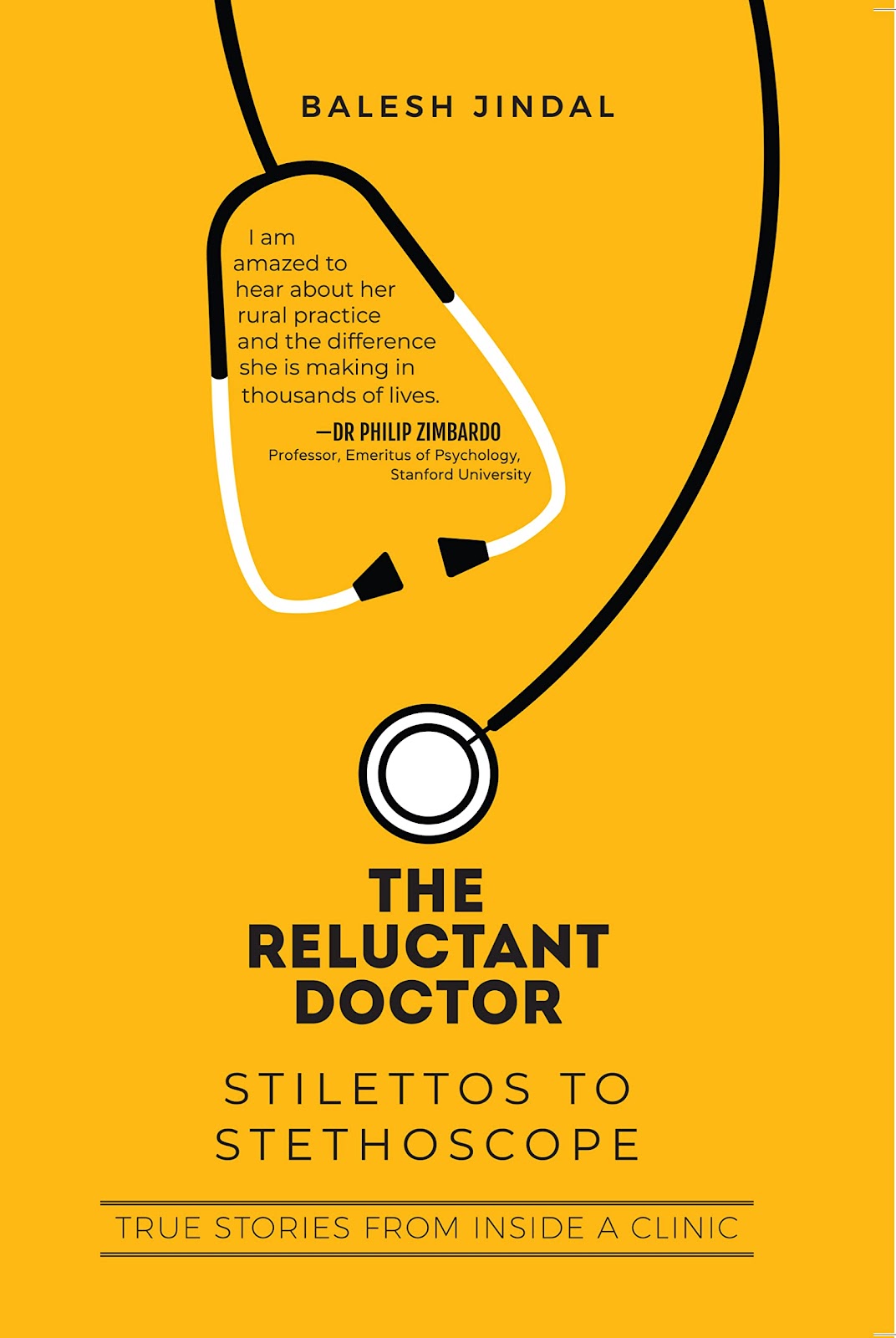Publication Date: 23rd September 2022
Genre: Memoir, Nonfiction
4.3 Stars
One Liner: Straightforward and heartfelt
With a tagline of Stilettos to Stethoscope: True Stories from Inside a Clinic, The Reluctant Doctor is a memoir of a practicing doctor's journey of thirty-eight years. As a newly married daughter of a rich businessman, the author dreams of accompanying her husband (a fellow doctor) in London and having the time of her life.
However, her father sets up a small clinic for her in the dusty village of Kapashera (South West Delhi- NCT) to treat his farm laborers. Of course, she could walk away and join her husband anytime. Yet, destiny decides that she change the lives of hundreds of people in the region and go on a different journey, one that’s a total contrast to her dreams.
My Thoughts:
I was torn when the author asked if I’d be interested in her book. I’m not into memoirs. However, this medical memoir spans many developments in the country. Finally, I decided to try, and I’m glad to say that it was the right decision.
The author is honest about her dreams and desires and how much she resented having to ‘step down’ and work in a remote village. I truly appreciate this. There’s no pretense or preaching here. No taking a moral high ground about wanting to do seva (service).
It’s refreshing to read a memoir that begins with a sulking twenty-five-year-old rich brat who grows into a mature woman who learns, unlearns, makes mistakes, saves lives, takes risks, loses loved ones, and becomes the most trusted and loved doctor in the region. The difference between the young and grown-up versions of the author is clear.
The author’s doctoring journey began in 1982. We see a multitude of events that happen from then to 2014 (ish). They aren’t in chronological order but grouped based on the type of events and random details. While this leads to regular repetition, it also prevents the book from being a monotonous narrative.
There’s no sugarcoating, nor is there any dramatization of real incidents. The author states them as she remembers them. Her feelings come across clearly, be it repulsion, revulsion, grudging acknowledgment, acceptance, determination, exasperation, fear, doubt, or vulnerability, she knows what she felt back then and has no qualms about stating them. Also, a recurring theme is about how the course program hardly equips a medical student to deal with real life cases, and how overwhelming a fresh doctor feels when facing the crowd.
With the events oscillating from one extreme to another, the book is a rollercoaster ride almost throughout. One instant I’d be cringing about something horrible, and the next, I’d be tearing up about happy news. This may not work for everyone, but it did for me. It kept the overall narrative balanced and flowing until the last section, which is mostly horrifying (though we have been desensitized to a lot of it over the years).
From quacks to domestic abuse to termination of unwanted pregnancies, incest, rapes, dowry, and desperate life-saving attempts, the book covers most cases a GP practicing in a rural village would have to deal with and more. As the progresses, we see how the author doesn’t limit her role to being a doctor but also becomes a counselor and does more than what she can educate the villagers about their health.
She makes bold statements about the wide gap between policymakers and ground realities. A book with liberal social commentary could go either way. However, this one stays on its path to a major extent. The opinions come from personal experience and the exhaustion of having to handle them countless times over the years.
One aspect I wish to add here is that incest, pedophilia, rape, and sexual abuse are global concerns. Many women prefer denial even when the victims are their dear ones. While the ‘big Indian family’ is definitely one reason for this in our country, it is not the only reason. As someone who has seen several posts in Tarot groups over a year, I can say this with definite authority. Things aren’t different around the world.
A doctor knows the importance of accurate diagnosis. After all, the wrong medicine could lead to death. The same rules apply here. Why are women conditioned to put others and even ideology over themselves? On one side, we have the orthodox matriarchs sacrificing girls’ futures to ensure the men in the family have an unblemished reputation.
On the other side, we have modern-day feminists shielding perverts and abusers, who they consider allies. Be it the activist-cum-author who protected her senior by not reporting sexual abuse as he has from the ‘lower caste’ or the young girl who chose to suffer rape (and eventually death) in the farmer’s protest because she didn’t want the ‘men fighting for a noble cause’ to suffer. Then we have women accusing a ‘privileged woman’ of being responsible for a poor man losing his job because she dared to complain about his perverted actions in a hospital. Where does the blame lay?
I wish the book had a few pictures of the clinic. I would have also liked a glimpse at the author’s paintings (she’s an artist, too!). The ending is another part that could have been smoothened. Though realistic, it is abrupt and jarring. While it can be impactful, it is not how a professional memoir should end. A book that does its best to present events without sensationalizing should have a smoother ending.
To summarize, The Reluctant Doctor is an honest memoir dealing with a person’s growth and the role of a determined GP in the rural community. It’s a worthy read despite the few issues with repetition and a bumpy beginning.
My heartfelt thanks to the author, Balesh Jindal, for a copy of the book.
***
P.S.: Many events in the book can be triggering, even without excessive descriptions.

No comments:
Post a Comment